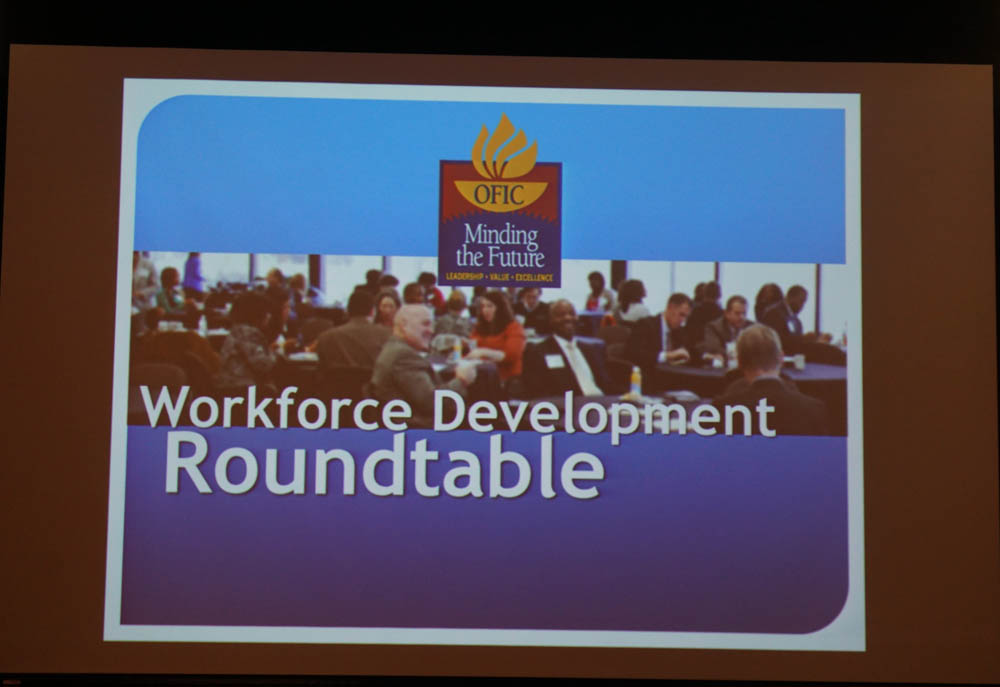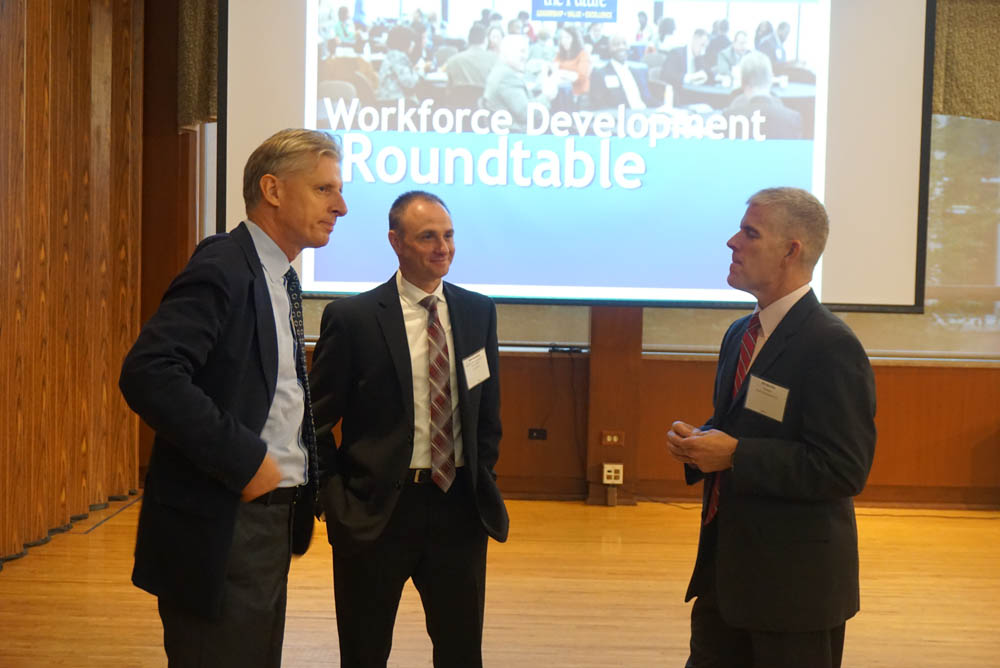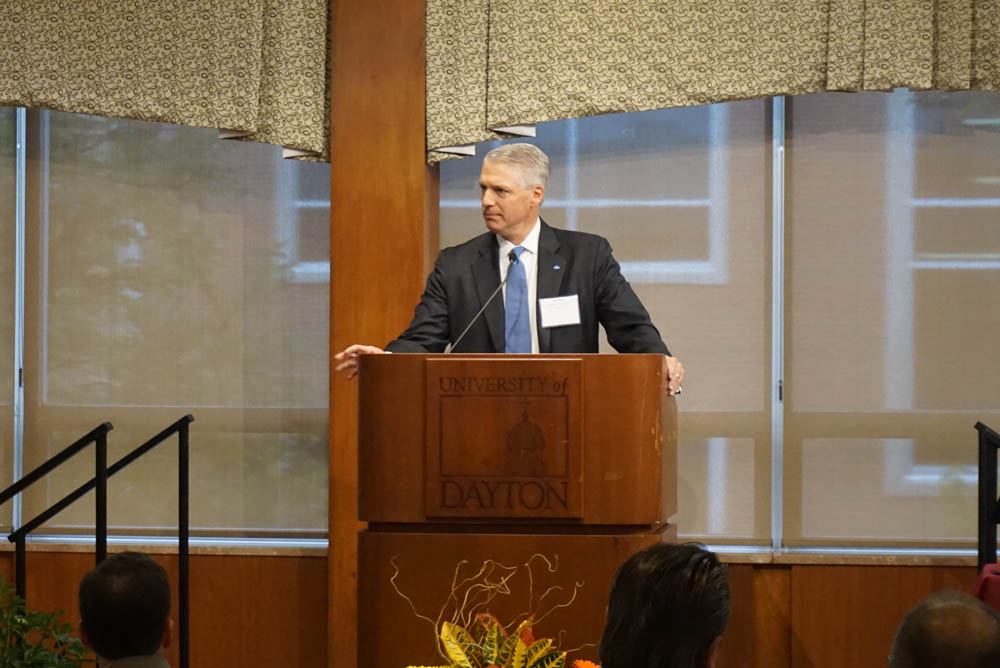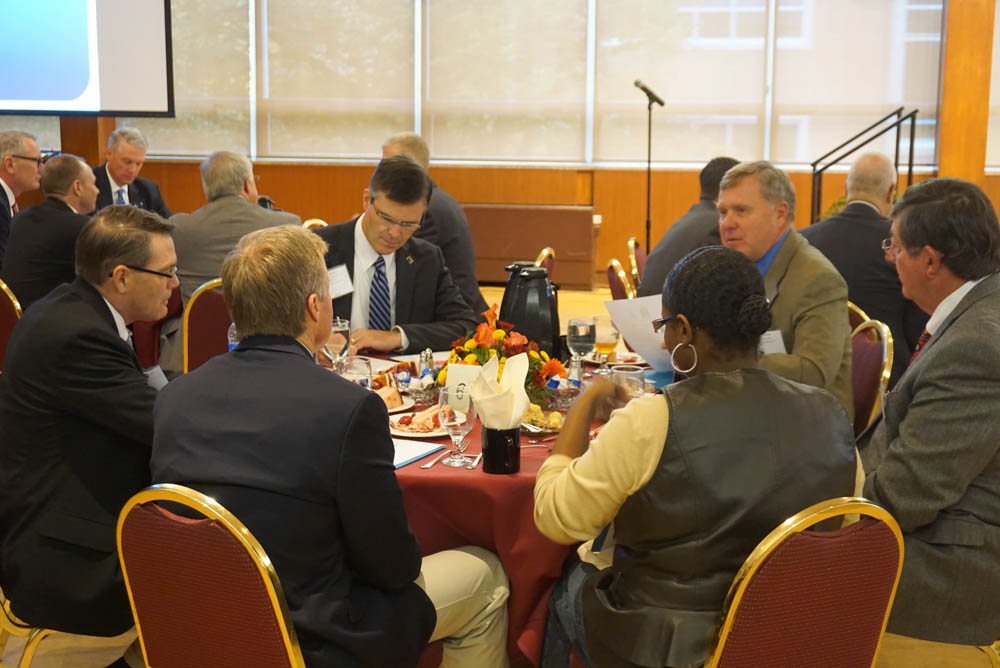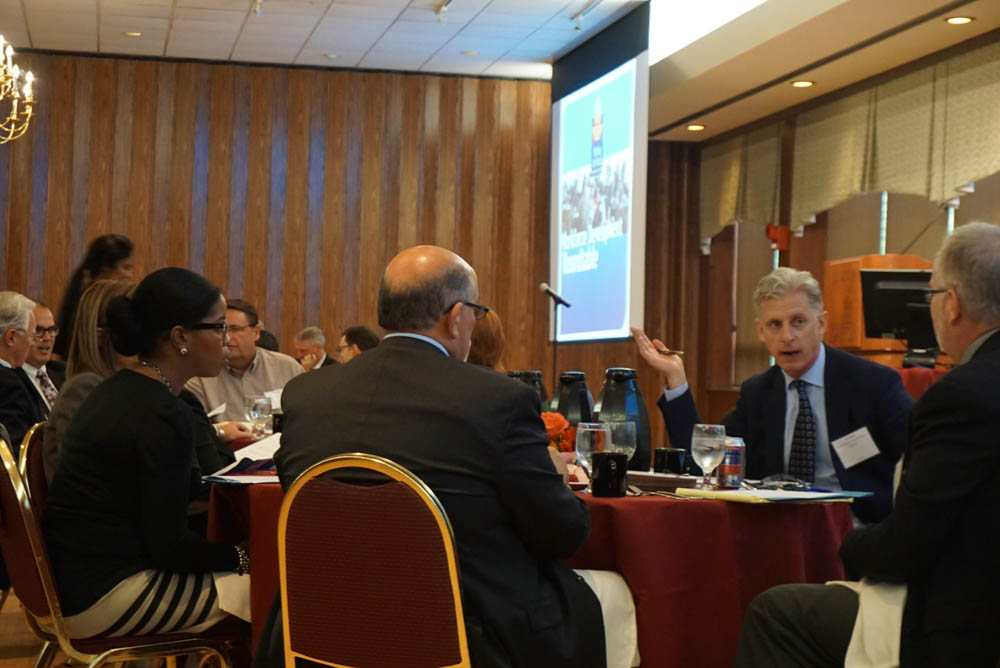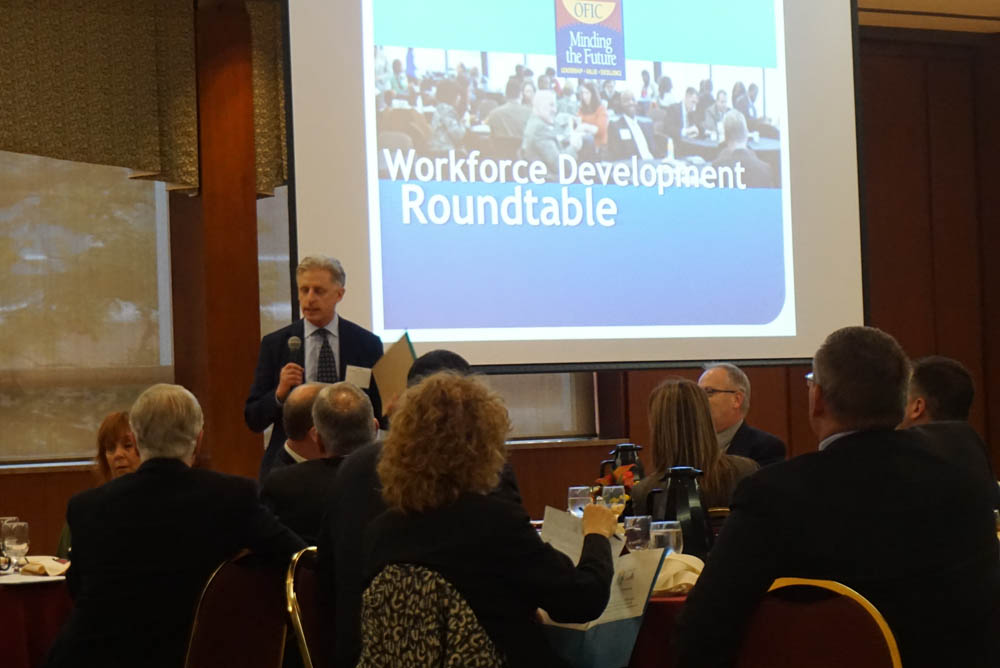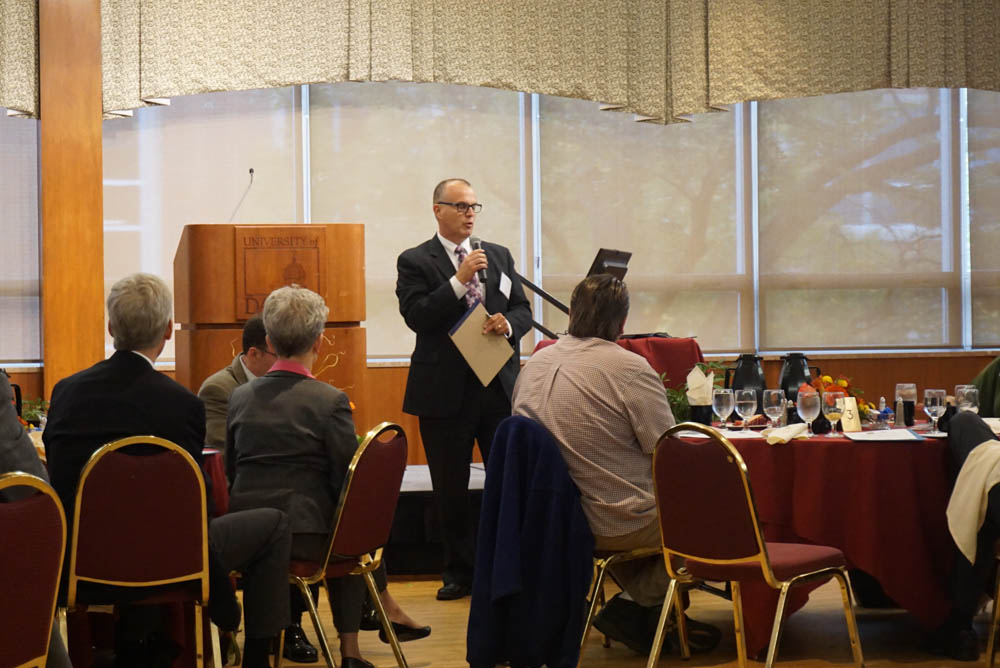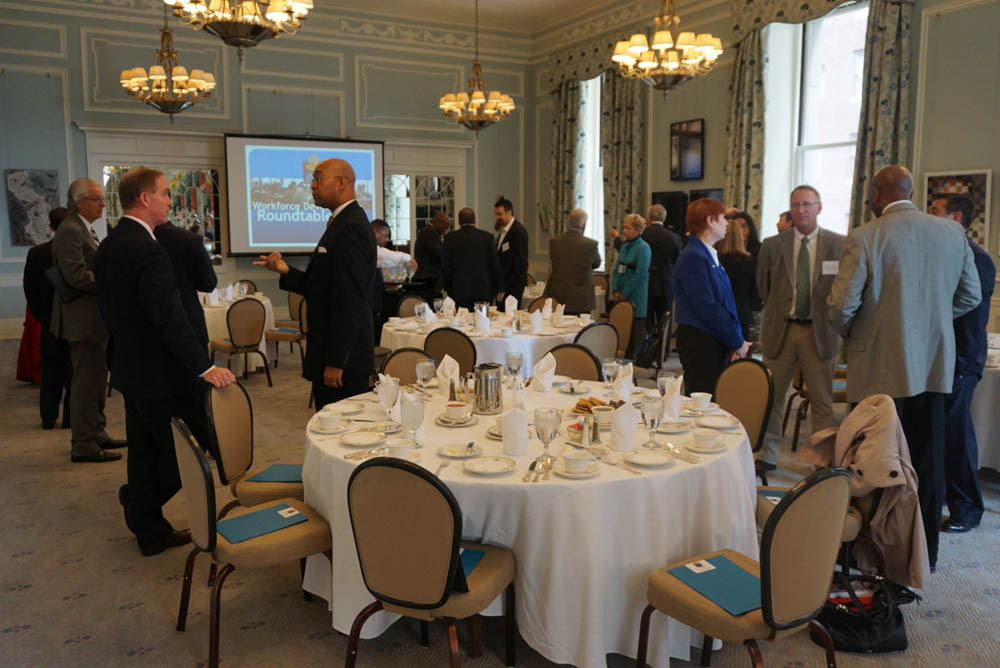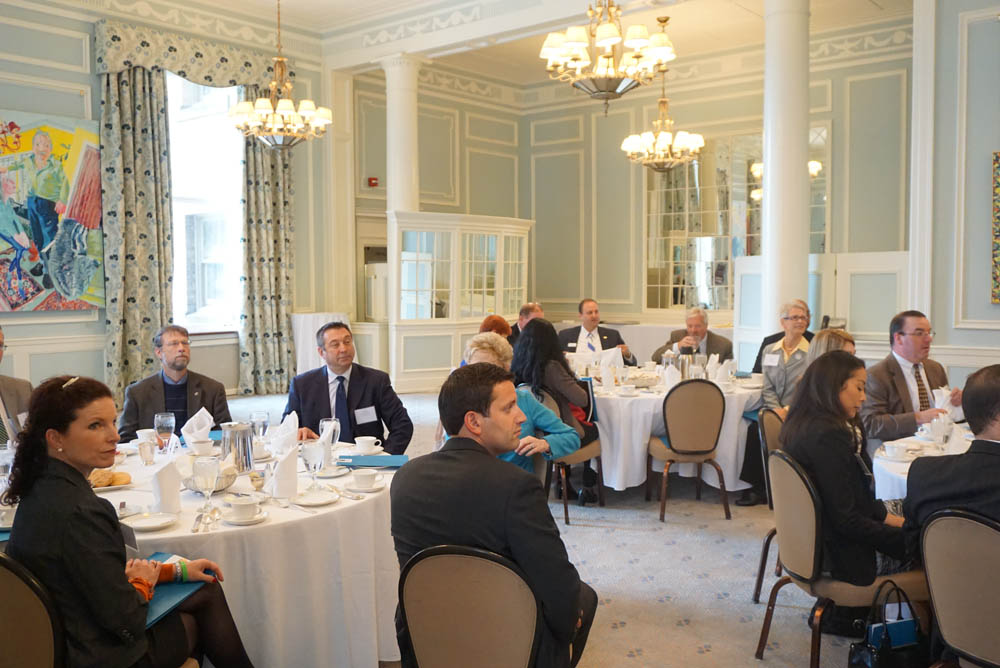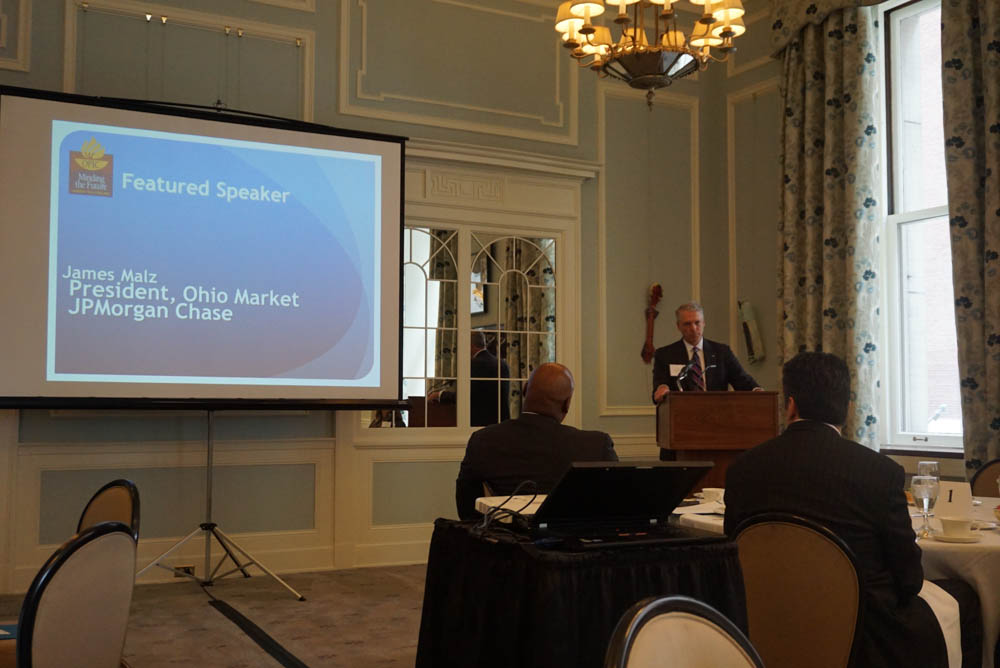Dayton 10/9/2014 Cleveland 10/20/2014 Columbus 11/13/2014
TOPIC SUMMARY
I. How do “soft skills”, such as communication competencies, critical-thinking ability and leadership acumen, influence our hiring decisions?
-“Soft skills” are highly valued in all represented businesses.
-The group acknowledged that liberal arts classes help in the development of critical thinking skills.
-Companies that prize well-prepared graduates in technological areas acknowledge that the liberal arts experience helps tech grads with the development of soft skills, writing and critical thinking but at the expense of more classroom time in the tech areas.
-Colleges should look at developing three-minute mock interviews with students to help them present themselves to HR officers and to prepare them for selling themselves and eventually their companies.
-Companies are resorting to in-house training of recent college graduates to help them with soft skill development. This has become more common among technology and engineering- based companies but may be worth having colleges address this issue while students are still on campus.
-When companies hire graduates they come equipped with basic technical skills and need technical training specific to that industry. Most companies are well equipped to do technical training because it is at the heart of their core competencies. Soft skills are more difficult to train and the company may need to go outside their organization to acquire that training. For this reason soft skills are often a higher priority in the hiring decision.
II. What are the primary talent acquisition concerns corporate Ohio is experiencing?
-There is a realization that strengthening Ohio’s colleges and universities helps to create stronger economic outcomes for Ohio.
-Building Ohio’s brand to make it more attractive will help keep our graduates in the state and can help bring more students here for college.
-Recruiting new hires with the right balance of talent, humility, approachability and appreciation for the professional journey can be challenging.
-It is important for Ohio to reach out to students in high school and even earlier grades to help them understand the importance of college and to link that to potential employment opportunities.
-Locating STEM students as interns or graduates to make them aware of available professions in their fields is still a challenge.
-Intern and co-op programs are valuable to students, parents and Ohio companies. The student has an opportunity to see if the job they are preparing for at graduation is right for them. This allows students to make an early mid-stream correction in their course of study toward a better fit. Early decisions cost parents less in tuition. Companies have the benefit of smart, energetic temporary employees working for them with the opportunity to hire those that fit their organization.
III. How do we identify and connect with STEM Graduates (Science, Technology, Engineering & Math majors)?
-Leadership is needed at the college level to expand ‘team experiences’.
-The demand for STEM talent is growing rapidly. In Columbus, this was largely centered on technology, computer science, and logistics. In Cleveland, the engineering and chemistry focus was stronger.
-The opportunity for more businesses to locate research facilities on OFIC campuses needs to be encouraged. The students and faculty are there and corporate Ohio is looking for opportunities to partner with colleges that can enhance their research, strengthen their personnel and create win-win outcomes.
-More Ohio companies need to embrace support of scholarships for STEM majors and offer internships and co-ops to better connect those opportunities in business/industry with college students.
-Start-up company incubators based on college campuses are a great way to connect large Fortune 500 companies with start up companies developing new technology. They also engage college research and graduate students particularly in the STEM areas.
IV. How will evolving technology influence our future hiring needs?
- We are educating students today for technologies we don’t even know about yet. Core strength in STEM basics and teaching students to learn how to learn will create the nimble workforce of the future.
-There is a significant lack of human capital in computer technology and this is especially true among women and minorities.
-Educating students for future technologies seems to be part of the critical thinking development that private colleges do especially well.
-We need an easy way to access talent for internships, co-ops and long term employment.
-New hires outside of technology can add a great deal to the mix. Many technology companies seek bright, literate, savvy recent college grads they can train internally to advance into the technology of the moment.


